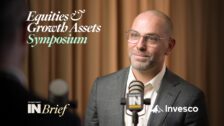A contrarian view on ESG
I’m often asked by clients and industry figures about Datt Capital’s position on ESG.
For a number of reasons, I have difficulty giving a black-and-white answer.
It’s fair to say that ESG, or its shorthand – ethical investing – has become part of the funds management zeitgeist, aided in part by much research pointing to better performance by fund managers that favour companies with good ESG policies and practices.
But what does ethical investing really mean?
For a start, there is no universal E (environmental sustainability); no universal S (social responsibility); nor universal G – corporate governance.
Ethics is a combination of morals, values and behaviour that is unique to each individual
When an investment is branded “ethical,” does it really mean the investments selected are consistent with the shared ethics of a reasonable swathe of society?
Another issue with so called “ethical” investing is the lack of truly ethical investments available. If we define “ethical” through the filter of “do no harm,” how many companies or businesses would qualify?
For some, the mainstays of ESG/ethical portfolio in the local context are the big four banks. Three out of four have been charged with a litany of historical offences, ranging from negligence to reporting suspicious transactions to government authorities, to facilitating payments for human trafficking and child exploitation. It is inevitable that mistakes will occur in corporate behemoths, but where does an “ethical” investor draw the line?
The mining industry is often vilified for lack of ESG principles, although this usually a misguided belief. For instance, coal is demonised by some “environmentalists” despite it being a major contributor to the rapid elevation in human development outcomes in developing countries.
I recall having a meeting near a mining conference in Melbourne, where “climate protesters” were demonstrating. A number of protesters came into the cafe where I was seated, ubiquitously bearing smartphones which are the product of mines around the world – including cobalt mined by child labourers in Sierra Leone. They came in to order freshly ground, barista-made coffee – some of which may have been picked by “coffee slaves” in Brazil, Guatemala or Cote D’Ivoire, depending on their selection.
My personal opinion is that the core of any ethical consideration rests on the statement popularly attributed to Hippocrates: “Primum non nocere” (“first, do no harm.”)
Viewed through this lens, some industries that may be a more obvious fit for ethical investors could include: distribution, mineral royalty companies, retailers and food processors.
We also agree with the view of some of our industry colleagues that the most effective way to give vent to your personal feeling on the E and the S is either to donate to the cause in question, buy or boycott products, or when investing, participate in a capital raising of a companies whose policies and actions in these areas you support. Purchasing shares in a favoured company on a secondary market does not have any meaningful impact on a company.
While I am sceptical about the rationale and impact investors can on the E and S we at Datt Capital believe that the G, governance, is the metric to focus on in deciding when to invest; as the research shows that poor corporate governance is usually related to performance.
Typical red flags include related-party transactions, not enough truly independent directors, and lack of diversity in management and staff.
All of these points ultimately beget the question: what is the solution for ESG/ethical-oriented investors?
We believe the solution is for investors to “look deeply into what’s in the tin,” by performing research into their investments, rather than taking at face value “what’s on the label.”
We encourage using an inter-generational approach. This encourages the evaluation of investments taking a “whole of lifecycle” perspective, while also enabling investors to express their own subjective sense of ethics. For instance, some may find the lack of recycling for end-of-life solar panels to be unpalatable, whereas others may determine the shorter-term benefits to outweigh the longer-term consequences.
Finally, if in doubt about the criticality of corporate governance, the current drama being played out between the New South Wales government casino authorities and Crown Resorts reaffirms once again the primacy of getting the ‘G’ correct. Governance failures by the Crown board and management have finally caught up with the company and shareholders are suffering accordingly.
Happy investing.










